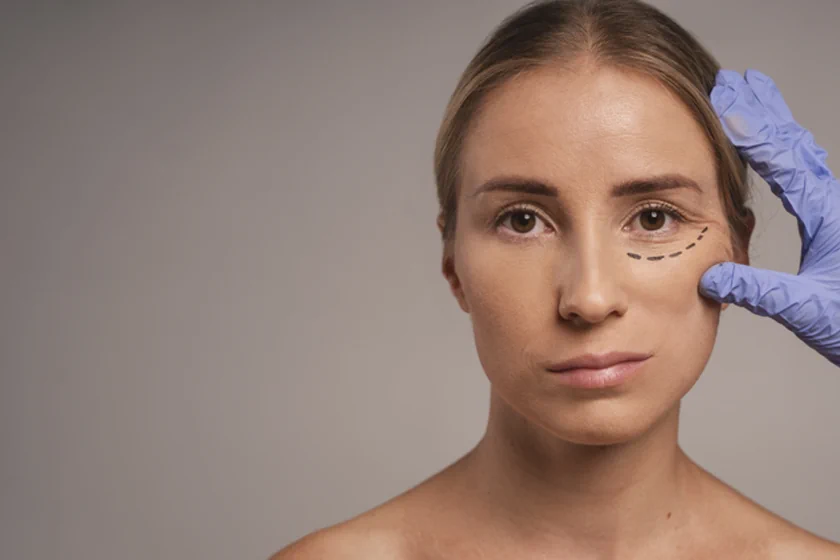|
Getting your Trinity Audio player ready...
|
As we step into the year 2024, we find ourselves at the threshold of a new era in eye care, marked by unprecedented advancements in technology and transformative trends reshaping the landscape of vision health. With each passing year, our understanding of ocular health deepens, propelled by groundbreaking research and innovative technologies that promise to revolutionize the way we approach eye care.
From the advent of advanced diagnostic tools to the refinement of surgical techniques, 2024 promises to be a pivotal year characterized by transformative advancements that are poised to redefine the way we perceive and address ocular health challenges.
Join us as we delve into the exciting world of newer technologies in eye care and explore the boundless opportunities they present for enhancing vision outcomes and improving lives.
Exploring the Latest Innovations in Eye Care
1. Advanced Diagnostic Technologies
Explore the latest advancements in diagnostic tools such as optical coherence tomography (OCT), retinal imaging, and wavefront aberrometry, which enable more precise and early detection of eye conditions.
2. Teleophthalmology
Discover how telemedicine and remote monitoring technologies are revolutionizing eye care delivery, allowing for virtual consultations, remote diagnosis, and follow-up care, particularly in underserved areas.
3. Artificial Intelligence (AI) in Ophthalmology
Learn about the role of AI algorithms in analyzing retinal scans, predicting disease progression, and assisting ophthalmologists in making accurate diagnoses and treatment recommendations.
4. Innovative Treatments for Vision Correction
Explore emerging treatments such as corneal cross-linking for keratoconus, implantable miniature telescopes for age-related macular degeneration (AMD), and gene therapy for inherited retinal diseases, offering new hope for patients with challenging conditions.
5. Minimally Invasive Surgeries
Discover the latest minimally invasive surgical techniques for cataract removal, glaucoma management, and refractive surgery, offering faster recovery times, reduced risk of complications, and improved patient outcomes.
6. Smart Contact Lenses and Wearable Technology
Learn about the development of smart contact lenses equipped with sensors for monitoring intraocular pressure, glucose levels, and drug delivery, as well as wearable devices for vision enhancement and rehabilitation.
7. Regenerative Medicine and Stem Cell Therapy
Explore the potential of regenerative medicine and stem cell therapy in treating corneal diseases, retinal degeneration, and optic nerve damage, offering hope for restoring vision in previously untreatable conditions.
8. Personalized Medicine Approaches
Understand how advances in genetics and molecular biology are paving the way for personalized treatment strategies tailored to individual genetic profiles and disease characteristics, leading to more targeted and effective therapies.
9. Collaborative Care Models
Explore collaborative care models involving multidisciplinary teams of ophthalmologists, optometrists, geneticists, and other specialists, fostering integrated approaches to patient care and improving treatment outcomes.
10. Patient Education and Empowerment
Learn about initiatives focused on patient education, empowerment, and engagement, leveraging digital platforms, interactive tools, and virtual reality simulations to enhance understanding of eye conditions and treatment options.
Virtual Reality Solutions for Vision Therapy
1. Virtual Reality (VR) Therapy
Discover how VR technology is revolutionizing vision therapy by creating immersive environments for patients to engage in therapeutic exercises and simulations. VR therapy can be particularly effective in treating amblyopia (lazy eye) and binocular vision disorders by providing visual stimuli and feedback in a controlled and interactive setting.
2. Interactive Vision Training Apps
Explore the emergence of interactive vision training apps designed to improve visual skills such as eye tracking, convergence, and depth perception. These apps leverage gamification techniques and personalized training programs to make vision therapy engaging and effective for patients of all ages.
3. Augmented Reality (AR) Glasses
Learn about the potential of AR glasses in vision therapy, which overlay digital visual stimuli onto the real world to enhance visual perception and spatial awareness. AR glasses can be used to simulate real-life scenarios and provide interactive feedback during vision therapy exercises.
4. Eye-Tracking Technology
Discover how eye-tracking technology is being integrated into vision therapy to objectively assess eye movements and gaze patterns. Eye-tracking devices can monitor progress, identify areas of improvement, and customize therapy protocols based on individual needs.
5. Neurofeedback Training
Explore the use of neurofeedback training systems in vision therapy, which measure and analyze brainwave activity to provide real-time feedback. Neurofeedback can help patients improve attention, focus, and visual processing skills by enhancing brain function through targeted exercises and reinforcement.
6. Digital Vision Assessment Tools
Learn about advanced digital vision assessment tools that use sophisticated algorithms and machine learning techniques to analyze visual function and identify areas of deficiency. These tools provide clinicians with valuable insights for designing personalized vision therapy programs and tracking progress over time.
7. Remote Vision Therapy Platforms
Discover how telehealth and remote vision therapy platforms are expanding access to vision care services, allowing patients to receive therapy sessions and guidance from the comfort of their homes. Remote therapy options enable greater flexibility and convenience while maintaining the effectiveness of in-person interventions.
8. Biofeedback Devices
Explore the use of biofeedback devices in vision therapy, which measure physiological responses such as heart rate variability and skin conductance to assess stress levels and arousal states. Biofeedback training can help patients regulate their autonomic nervous system and improve visual performance through relaxation techniques and stress management strategies.
FAQs
1. What are the benefits of embracing modern technologies for improving eye vision?
Embracing modern technologies can lead to enhanced diagnostic accuracy, personalized treatment approaches, and improved patient outcomes in vision care.
2. How can augmented reality (AR) and virtual reality (VR) technologies be used to enhance vision therapy?
AR and VR technologies can create immersive environments for vision therapy exercises, providing interactive feedback and personalized simulations to improve visual skills and perception.
3. Are there any risks associated with using modern technologies for eye vision enhancement?
While modern technologies offer numerous benefits, it’s essential to ensure proper training, supervision, and adherence to safety guidelines to minimize potential risks such as eye strain or overreliance on technology.
4. Can wearable devices like smart glasses or contact lenses improve vision for individuals with visual impairments?
Yes, wearable devices equipped with advanced features such as magnification, contrast enhancement, and object recognition can assist individuals with visual impairments in daily tasks and navigation.
5. How does telemedicine and remote monitoring benefit patients in accessing eye care services?
Telemedicine enables remote consultations with eye care professionals, facilitating timely access to expert advice, follow-up care, and monitoring of chronic eye conditions, particularly for patients in remote or underserved areas.
Conclusion
Embracing modern technologies in eye vision care opens up a world of possibilities for improved diagnosis, treatment, and rehabilitation. From augmented reality and virtual reality therapies to wearable devices and telemedicine solutions, these innovations are transforming the way we approach vision health.
As you embark on your journey to better vision, remember that expert guidance and access to the latest technologies are essential for achieving optimal outcomes. Dr. Surbhi Kapadia, with her expertise and access to cutting-edge technologies, is committed to providing personalized care and delivering the best results for her patients.
Contact Dr. Surbhi Kapadia today for consultations and experience the benefits of modern technology in achieving your vision goals.
![]()







